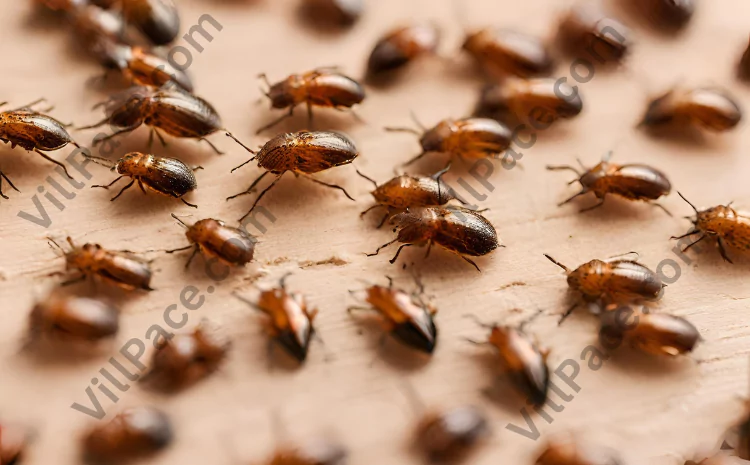Finding tiny beetles or unusual bugs roaming around your home can certainly cause alarm. Before reaching for harsh chemicals however, many effective natural remedies deter small brown bugs gentle for families.
Key Takeaways
- Identify species first through physical traits and behaviors
- Seal cracks and pipe openings to block insect entry paths
- Natural diatomaceous earth causes dehydration killing small bugs
- Essential oils like mint, citrus, and tea tree repel many insects
- Maintain clean surfaces and food storage practices to discourage infestations
With some diligent investigation plus proactive treatments focused on excluding, trapping, and repelling common household insects naturally, your interiors can maintain pest-free tranquility.
Identifying Small Brown Household Bugs
Inspect the tiny insects up close first. Are they solitary or travel in swarms? Note key features like:
- Number of legs – 6 indicates beetles
- Distinct markings – Dots, stripes, smooth sections
- Larvae or mature adults
Also observe habits like flying versus crawling and foods targeted to help pinpoint the likely species.
Common small brown home invaders include:
- Flour beetles – Feed on grain and flour products
- Carpet beetles – Damage fabric, clothing fibers
- Drugstore beetles – Infest dried goods and pet food
Correct identification then allows better understanding behavior, reproduction, and ideal removal methods.
Now let’s explore tips for safely evicting populations without chemicals.
Blocking Insect Entry Points
Before deploying natural pest removal remedies, first seal any cracks and openings throughout the home’s interior plus exterior perimeter.
Caulking and weatherstripping doors, windows, pipe channels, vents, outlets covers vulnerable gaps invasive insects exploit to enter and nest undiscovered.
Shutting down accessibility forces them to look elsewhere for shelter. Steel wool also blocks existing holes temporarily.
Diatomaceous Earth Kills Bugs Naturally
Diatomaceous earth (DE) proves remarkably effective killing crawling insects naturally through microscopic abrasion. Composed of crushed sea fossils, DE’s sharp powder dehydrates tiny bug bodies fatally while safe for children and pets once settled.
For efficacy with minimum mess, apply food grade DE dust via:
- Perimeter treatments – Dust along baseboards, under appliances, attic rafters
- Concealed nest tracking – Puff inside electric outlets, vents, crevices near sightings
Reapply DE after vacuuming up previous layers or excessive moisture. The microscopic scratches continuously ward off fresh infestations.
Essential Oil Repellents
Certain essential oils make indoor spaces inhospitable driving away insects through intense fragrances.
Effective DIY essential oil bug sprays include:
- Peppermint oil – Strongly repels spiders, ants, mosquitoes
- Cedarwood oil – Masks pheromone attraction trails
- Citrus oils – Limonene content interferes with vital functions
- Rosemary, lavender, eucalyptus – Repel many flying insects
Spritz diluted mixtures in dark corners, under sinks, and other prime hiding spots to both eliminate emerged bugs plus deter new colonies from settling while keeping rooms smelling fresh.
Maintaining Strict Kitchen Hygiene
As a final tip, adhere to meticulous kitchen cleanliness standards so existing or invading bugs starve with no accessible food sources. Proper food storage matters immensely!
- Refrigerate opened dry goods in airtight containers
- Freeze home baked goods not consumed quickly
- Frequently wipe down shelves collecting crumbs and residues
With this proactive defense lineup of sealing cracks, applying boric acid and diatomaceous earth, using essential oil repellents plus upholding spotless surfaces, the household environment transforms into an inhospitable setting chasing tiny unwanted bugs away for good naturally!

Mark Thompson, a seasoned pest controller, is renowned for his expertise in keeping homes and businesses free from unwanted intruders. With a passion for environmental sustainability and a deep understanding of pest behavior, Mark has become a trusted authority in the industry.
